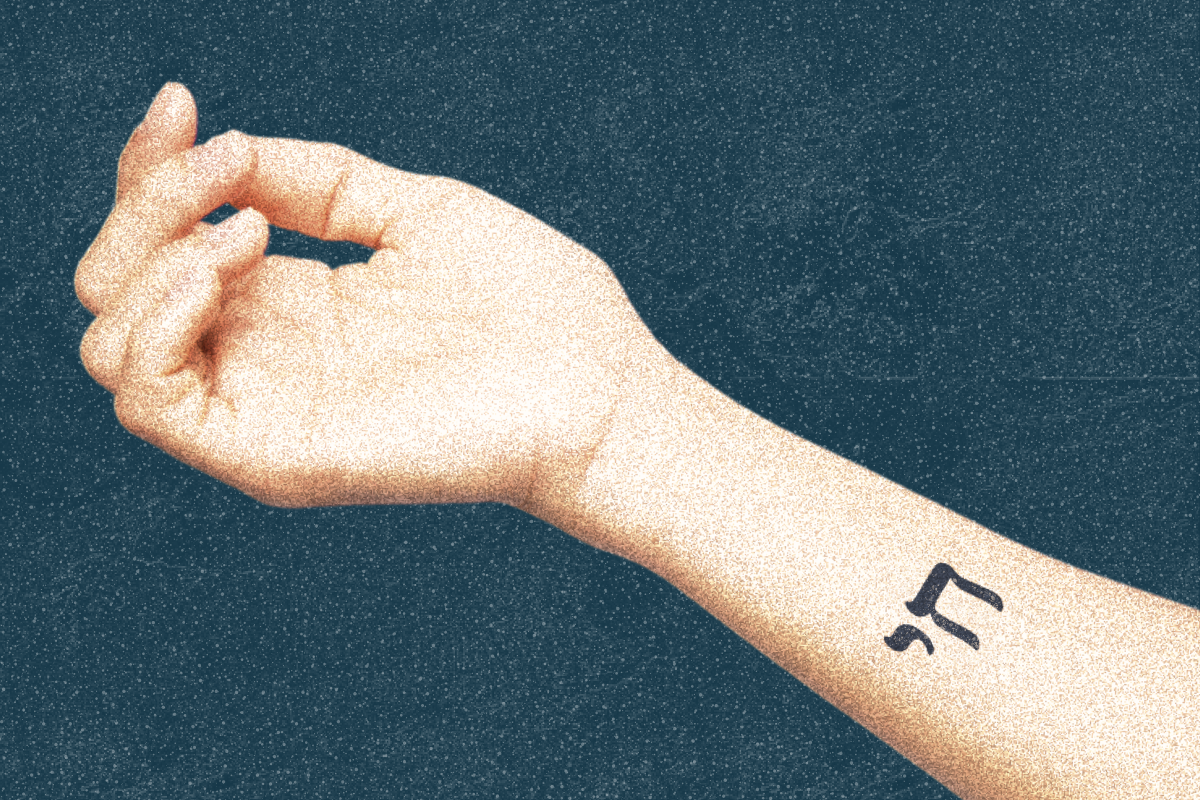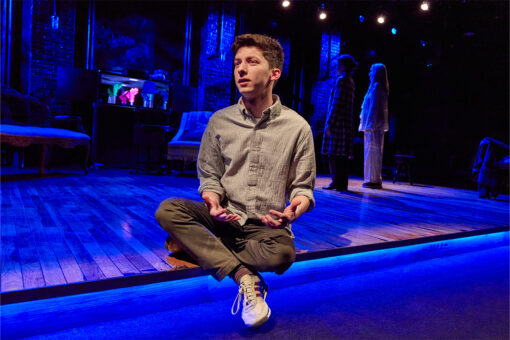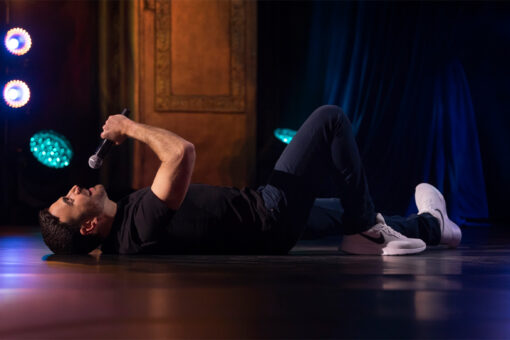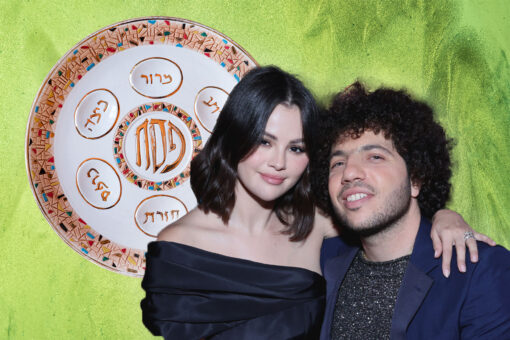From the moment I turned 18, I wanted a tattoo. But as a Jew, getting a tattoo required confronting long-held beliefs surrounding this kind of self expression. I grew up learning that the Torah forbids tattoos; that if you get one, you won’t be permitted burial in a Jewish cemetery. (Editor’s note: The latter is actually a myth!) During the Holocaust, Jews were marked with tattoos upon entering concentration camps, which has created a painful association for many in the community. And of course, my parents and grandparents would be horrified by my deviance — or worse, disappointed (the Jewish guilt is strong in my family).
So I delayed the decision. For 11 years, I thought about getting a tattoo, but never pulled the trigger. And I’m glad I waited… I had really bad taste in my teens and twenties. At 18, I was set on getting Dory, the fish from “Finding Nemo,” complete with the quote, “Just Keep Swimming.” At 20, I wanted to ink “Friends, Family, Happiness, Health” on my wrist. And when I graduated college at 21, I considered tattooing the Michigan “M” on my ankle. I cringe now at these tattoo ideas that (thankfully) never became a reality.
But as I continued to mature, I learned more and more about who I was, what mattered to me, and in turn, what kinds of things I’d want to actually brandish on my body. And as I neared my 30s, my very reason for waiting became the driving force to finally get a tattoo: my family, my background and my Jewish identity.
The impetus to finally getting my tattoo was my marriage. At 28, I married my best friend.
I had no qualms about dropping my last name and taking his, so within a month of our wedding, I had a new name. It was only after all the paperwork went through that I realized that, while I was thrilled to have the legal marker linking me to my husband, I had also simultaneously lost my last link to my parents and grandparents. Getting a tattoo to honor my family felt right in a way “Dory” and the other tattoo ideas never did. Ultimately, I decided to get the Hebrew word chai on my left forearm. Chai — which translates to “life” — is an important symbol for my family (as it is for many Jews). The word is linked to the number 18, making that my family’s lucky number. I got my chai tattoo knowing it would be a physical reminder that while I have a new nuclear family and a new name, my first family will always be a permanent part of me.
When I broke the news to my family about my tattoo, I braced for their negative reaction. But they weren’t angry; they were honored. Even my dad, who had always been the most against me getting a tattoo, cried tears of joy when he learned the meaning behind my ink.
The timing of my tattoo was impeccable. I got inked on Sept. 1, 2023. Just one month and six days later, the world as I knew it changed.
We all know what happened on October 7. It was a turning point for American Jews. Regardless of their political views or their opinions about Israel, many Jews began experiencing increased rates of antisemitism. In the days following the 7th, I had to wrestle with my desire to show my pride in my Jewish identity and the increasing need to protect my personal safety and security. While many of my friends stopped wearing Jewish identifiers like certain jewelry and clothing, there I was, with Hebrew letters permanently inked on my arm. I will never forget the moment when my husband gently suggested that I put a bandaid over my tattoo. “Just in case,” he said. I debated it, but ultimately, I did not take his advice.
Having a physical marker of my Judaism in a post-October-7 world forced me to confront a lot of hard truths – that some of my fears about antisemitism are real. But also, that there are so many people who embrace and respect my background. And most-importantly, that I still have an enormous amount of privilege.
I’m not the only one out there with a tattoo signifying my identity. Just a few weeks ago, I shared a subway car with a man who wielded a bold, foreboding swastika tattoo on his neck. Heart racing, I crossed my arms as tight as I could to cover my own ink, and switched cars as quickly as possible. I’m not insinuating that something would have transpired — who knows? But in that moment, I couldn’t help but hark back to the subway incident a few months prior, when a masked protester boarded a subway car and shouted “raise your hand if you’re a Zionist… this is your chance to get out.” I think all the time about what would have happened if I was in that subway car. I’m not looking to debate whether the words “Zionist” and “Jewish” can or should be interchangeable. The point is, I know that wouldn’t change the fact that even if I didn’t say a word in that subway car, people would see my tattoo and they would make assumptions.
I recall another moment, when I was at the doctor getting my blood drawn. When I pulled up my sleeve, the nurse looked at my arm and asked: “What does your tattoo mean?” The moment only lasted for a few seconds, but a million thoughts raced through my head. I didn’t know this woman — and she was about to stick me with a needle — how honest should I be? I settled on a vague reply, that it was a symbol for “life.” But the nurse pressed further. “In what language?” “Hebrew,” I resigned. And to my relief, the nurse nodded, smiled, and proceeded to prick me with precision. Although at times it may feel like antisemitism is all around us, this was a reminder that, as a whole, people are still respectful, polite and professional.
And of course, it would be remiss of me to fail to note the obvious: I am still incredibly privileged. While I do have this new identifier on my skin, there are people who cannot hide their identity by just crossing their arms or pulling down their sleeves. Over the past year, I’ve gotten the teeniest, tiniest little taste of what it might be like to have your identity outwardly displayed in a world where people may hate you for it. But it’s nowhere near the fear that people of color are forced to face on a daily basis. If anything, this revelation has emboldened me to continue speaking out against racism.
I’ve now had my tattoo for just more than a year, and I’m struck by all that has changed in my life and my world view. But even more, I’m moved by the parts of my life that will never change — the pieces of me that I got this tattoo to commemorate originally. My interests will come and go. The political and global landscape will continue to evolve. I truly believe my marriage will last forever (I love you Michael!!!) but even that is just a document on paper. It’s my roots — my family and my Jewish heritage — that are permanent parts of me, deeply embedded in who I am. And if I ever forget it, all I need to do is look down at the chai on my forearm.



